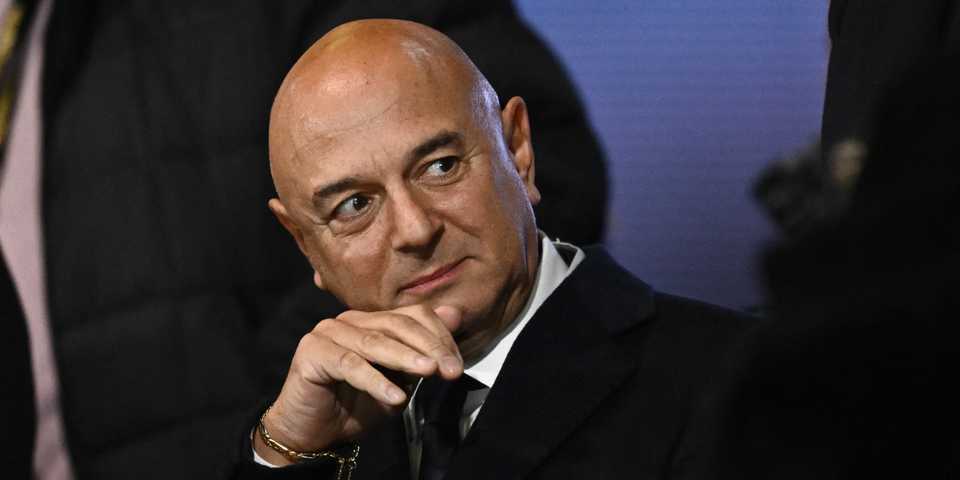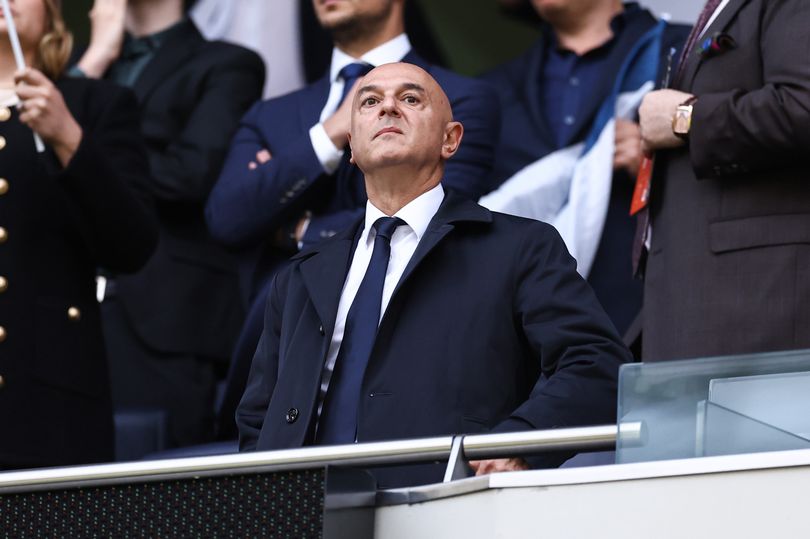The world of football is rarely surprised by a quiet departure, but when a figure as central as Daniel Levy steps down after nearly a quarter of a century, the reverberations are felt across the entire sport.
Levy’s sudden exit as executive chairman of Tottenham Hotspur has sparked intense speculation about the true motives behind the move and what it signals for the future of the North London club.
According to former Crystal Palace owner Simon Jordan, this was not a simple retirement or a voluntary step aside; it was a strategic decision made above Levy’s head, pointing toward a much larger endgame—the eventual sale of the club.
Jordan, who has deep experience in the complexities of football club ownership, did not mince his words when discussing the situation.
He suggested that the Lewis family, the ultimate owners of Tottenham through their investment vehicle ENIC, effectively “pushed” Levy out of his role.
His reasoning is rooted in the belief that this move is a clear step in preparing the club for a change in ownership. “My nose tells me that,” Jordan stated on talkSPORT, indicating that his instincts, shaped by years in the boardroom, point to a calculated strategy.

He theorized that Levy’s removal might have been necessary to streamline a future sale, removing a figure so synonymous with the old regime to make the club more attractive to new investors.
The ultimate goal, in Jordan’s view, is for the Lewis family to “extract maximum value” from their asset. This aligns with reports that value Tottenham at a staggering £4 billion.
This astronomical figure isn’t just plucked from thin air; it’s a reflection of the club’s immense commercial power. The state-of-the-art Tottenham Hotspur Stadium is a goldmine, generating revenue not just from football but from NFL games, concerts, and other major events.
Combined with consistent Premier League and European income and a very healthy financial position, Spurs represent one of the most lucrative properties in world sports.
The question on everyone’s mind is: who would be the buyer? Jordan mentioned conversations with potential interest from the Middle East, specifically referencing Bahraini groups, though he also noted that Qatari sources have reportedly distanced themselves from a bid.
The most likely suitors, as often is the case in modern football, are thought to be American investors, who have been increasingly active in acquiring Premier League clubs.
This change at the very top, with Levy’s departure and the appointment of a new non-executive chairman, effectively clears the deck for serious negotiations to begin.
This potential sale also ties into the anticipated “cash injection” that many sources believe is coming. The expectation is that significant funds will be made available to manager Thomas Frank over the next few transfer windows, with the ambition of building a squad capable of competing at the very top of European football.
This ambitious project is likely designed to make the club even more valuable and attractive to a prospective buyer.
On the pitch, the club’s deadline day business has also come under scrutiny. The loan signing of French international Randal Kolo Muani from Paris Saint-Germain has been met with a mixed reception.
Some analysts, like Julien Laurens, have been openly critical, comparing him to the inconsistent Richarlison and questioning whether he truly represents an upgrade.
Furthermore, reports of a last-minute enquiry for Crystal Palace’s Jean-Philippe Mateta that failed to materialize into a bid suggest a possible scramble, perhaps indicating the challenges of operating under a cloud of transition.
In the end, Daniel Levy’s departure feels like the end of a definitive era and the cautious beginning of another. The man who built a modern sporting empire, complete with a world-class stadium and training ground, has now exited stage left.
The circumstances suggest this was less a farewell and more a strategic repositioning. The message from the top seems clear: Tottenham Hotspur is being polished, primed, and prepared for a new owner, and that process required a change in leadership to truly begin. The coming months will reveal whether this bold move leads to the bright new future the ownership envisions.

